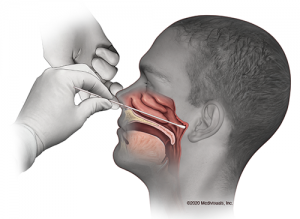Covid-19
 Most people infected with the COVID-19 virus will experience mild to moderate respiratory illness and recover without requiring special treatment. Older people, and those with underlying medical problems like cardiovascular disease, diabetes, chronic respiratory disease, and cancer are more likely to develop serious illness.
Most people infected with the COVID-19 virus will experience mild to moderate respiratory illness and recover without requiring special treatment. Older people, and those with underlying medical problems like cardiovascular disease, diabetes, chronic respiratory disease, and cancer are more likely to develop serious illness.
The best way to prevent and slow down transmission is be well informed about the COVID-19 virus, the disease it causes and how it spreads. Protect yourself and others from infection by washing your hands or using an alcohol based rub frequently and not touching your face.
The COVID-19 virus spreads primarily through droplets of saliva or discharge from the nose when an infected person coughs or sneezes, so it�s important that you also practice respiratory etiquette (for example, by coughing into a flexed elbow).
Testing for COVID-19 involves inserting a 6-inch long swab (like a long Q-tip) into the cavity between the nose and mouth (nasopharyngeal swab) for 15 seconds and rotating it several times. The swabbing is then repeated on the other side of the nose to make sure enough material is collected.
Sorry, the comment form is closed at this time.